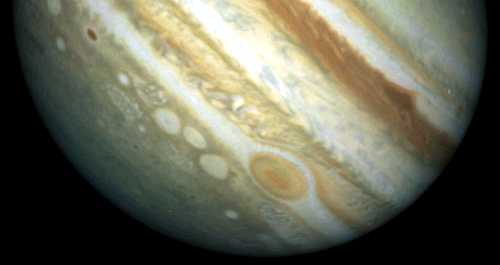Welcome to the Earth Home Page free for our members to use! Greek Gods – The Historical Background
Greek gods are an integral part of Greek mythology. Our formal knowledge of the ancient Greek gods can be traced back to the writings of Homer in the Iliad and the Odyssey (8th century BC). In addition, many scholars believe that the myths were heavily influenced by the Mycenaean culture that existed in Greece between 1700 and 1100 BC. Remarkably, there is evidence that the beginnings of Greek mythology can be traced back to the ancient Middle Eastern cultures of Mesopotamia and Anatolia. There are many similarities between the mythology of these ancient Middle Eastern cultures and the ancient Greeks.Greek Gods – The Religious & Social Background
The Greek gods were created by man to explain the world around them, act as a means of exploration, provide legitimacy and authority to ancient Greek aristocracy, and provide entertainment for the masses. The religion of the ancient Greeks did not have a single source of written scripture such as the Bible or the Qur’an. Furthermore, the ancient Greeks did not believe in absolute truth as practiced by modern faiths such as Christianity and Judaism. Generally, a Greek city-state would devote itself to a particular god or a set of gods, and depending on the location of the city-state, the characteristics of the gods could vary widely. Many city-states erected temples to their particular gods, and these gods were honored in festivals and animal sacrifices. The ancient Greek gods normally took on human form and lived in a society similar to human society. They exhibited all the emotions of human beings and frequently intervened in human history. The most significant difference between the Greek gods and humans was that the gods were immortal and human beings were not.Greek Gods – The Creation Myths
It is difficult to trace the ancestry of the ancient Greek gods since there are several creation myths. A combination of the account put together by the Greek Poet Hesiod in the 8th century BC and an account written by the mythographer (compiler of myths) Apollodrous would have been recognized by most ancient Greeks. It was as follows: The god Chaos (gaping void) was the foundation of all creation. Out of this god arose Gaea (earth), Tartarus (underworld) and Eros (love). The god Eros was necessary to draw Chaos and Gaea together so that they would produce offspring. Chaos then created night and the first born of Gaea was Uranus (god of the heavens). The union of Chaos and Gaea also resulted in the creation of the mountains, seas, and gods known as Titans. The interaction of these early gods resulted in the creation of several other gods. These included well-known figures such as Aphrodite, Hades, Poseidon and Zeus. Zeus eventually waged war on his father (Cronus) and the Titans. As a result of this conflict, Zeus established a new regime on Mt. Olympus. Zeus ruled the sky, his bother Poseidon ruled the seas, and his brother Hades ruled the underworld. The creation of human beings is the result of conflicting myths. Many creation stories held that human beings sprang directly from the ground. In some cases, separate Greek societies had their own unique creation events. This is true for the Arcadians and Thebans, which both trace their beginnings to different earth-born men created in different areas. One myth states that humans were created out of earth and water, aided by the Titan, Prometheus, with his gift of fire.Greek Gods – The Great Flood
The ancient Greeks believed in a flood that destroyed all mankind similar to the account described in the Bible. In the Greek myth, the flood took place during the age of Deucalion 1 (1450 BC). Deucalion 1 and his wife, Pyrrah 1, were warned in advance of the coming deluge and told to construct a chest and fill it with provisions. The source of the coming deluge was the anger of Zeus towards mankind. Zeus had become disgusted at the degeneration of humans, and in particular, the practice of human sacrifice. Zeus assembled the gods and decided to wipe out mankind by water. Deucalion and Pyrrah survived the flood by floating in the chest they built. They floated in the chest for nine days and nine nights and came to rest on a mountain in Phocis. Once Zeus realized that the world was a stagnant pool of water survived only by Deucalion and Pyrrah, he stopped the rains and restored the land. In order to repopulate the world, the gods instructed the survivors to cast stones over their heads. The stones cast by Deucalion became men and the stones cast by Pyrrah became women. This recreation by stone was used to explain the hardness of the human race. There are a great number of differences between the Greek myth and the account of the flood described in the Bible. For example, there is evidence that the biblical flood took place closer to 2500 BC. Furthermore, unlike the Greek myth, Noah and his family were saved along with sufficient animal life to repopulate the planet. However, both accounts maintain that the world was destroyed as the result of mankind’s sin, and the human race was saved as a result of a few individuals leading a righteous life.Greek Gods – Life after Death
The Greek gods represented the ancient Greek belief that when an individual died, his vital breath or psyche left the body to enter the palace of Hades (king of the dead). In the earlier periods of ancient Greece, the psyche was not the same as the Christian view of a soul. Once it left the body, the psyche was a phantom image that could be perceived, but not touched. The wall separating the living from the dead was impenetrable. Gradually, the concept of the psyche became similar to the concept of a soul. The soul was separate from the body, but responsible for an individual’s personality. The soul was also responsible for an individual’s moral decisions.
The early Greeks did not believe that a person’s action in this life had any bearing on their afterlife. However, by “Classical Times” (480-323 BC), the belief that a moral person would be rewarded in the afterlife was prevalent. At the same time, the idea that a person who repeatedly transgressed deserved eternal punishment developed. The concern of how one spent their afterlife led to many burial rituals and commemorative ceremonies for the dead.Greek Gods – The Lasting Effects
The Greek gods continue to impact modern society, and the lasting effects of ancient Greek civilization cannot be exaggerated. In fact, most of Western civilization can trace its origins to ancient Greece. When the Roman Empire conquered the Greeks they inherited an extensive empire. The Romans also adopted the beliefs of the Greeks and Greek mythology became the official religion of the Roman Empire. This lasted for centuries, until the Roman emperor Constantine adopted Christianity as the official religion of the Rome in 312 AD.
Although there are no modern formal religions that worship the ancient Greek gods, their legacy continues throughout the entire world. In particular, the arts have been greatly influenced by Greek mythology. Many well-known masterpieces in painting, music, literature and theater use themes from Greek mythology. Today, the influence of Greek mythology and the ancient Greek gods shows no sign of diminishing. Computer games frequently use stories of the ancient Greek gods as a backdrop for their quest orientated games. Motion pictures that utilize characters from Greek mythology are still popular. It seems that the moral and intellectual themes of the stories behind the ancient Greek gods have proven easily adaptable to many cultures over many centuries. It shows mankind’s inherent need to explore origins, meaning and morality – it shows man’s need to explain why he is here and where he is going… |




